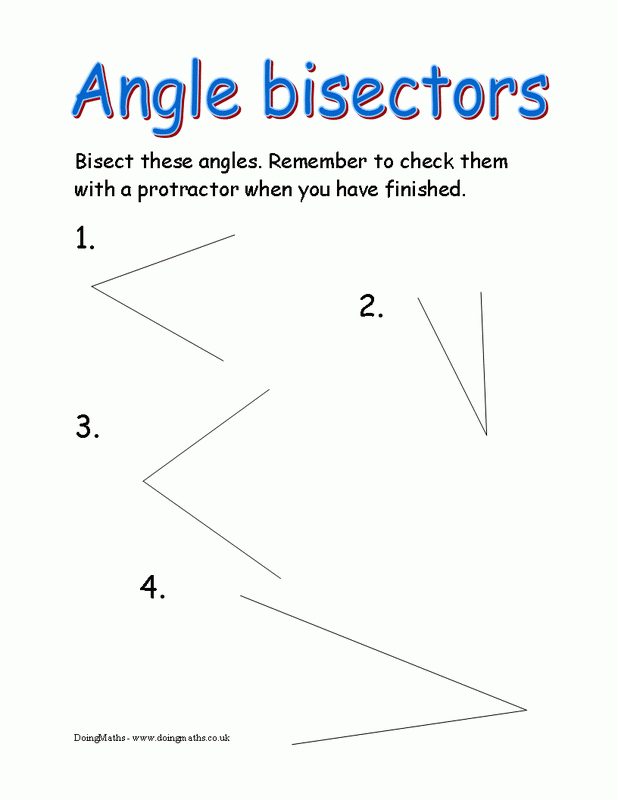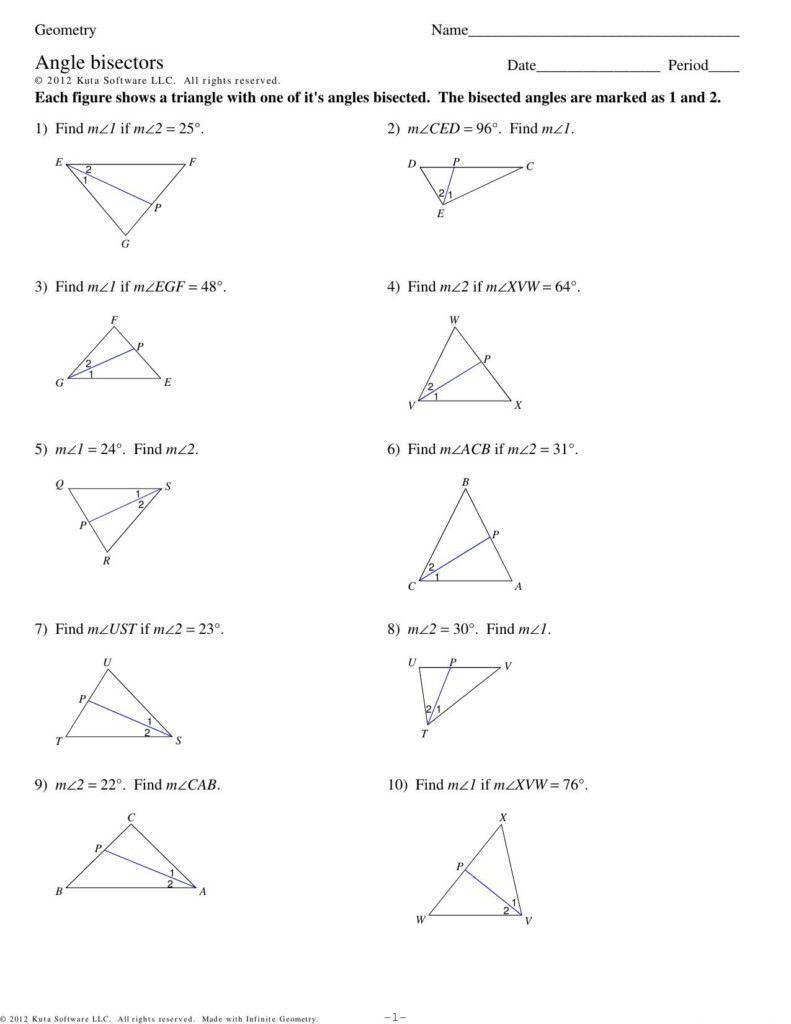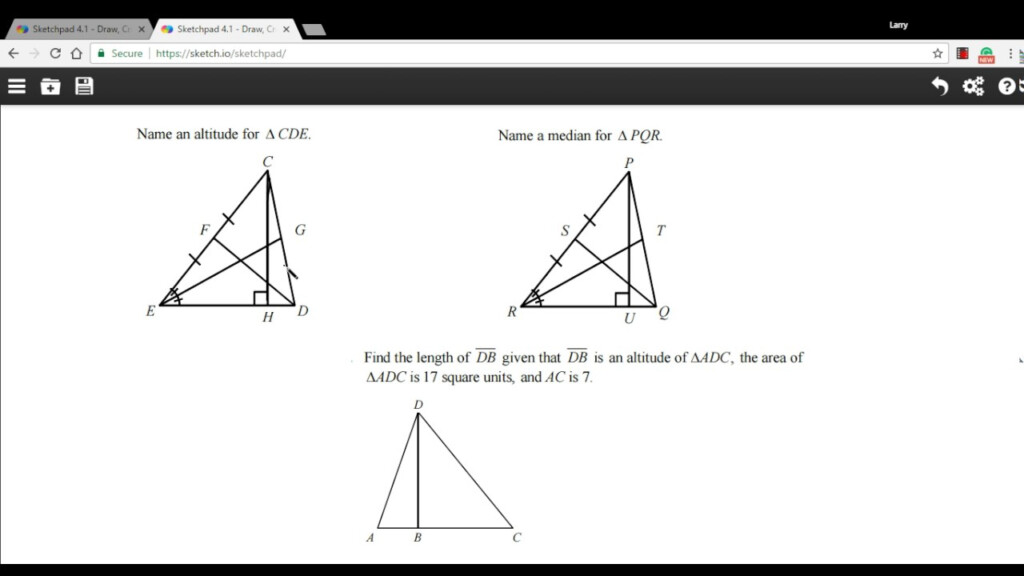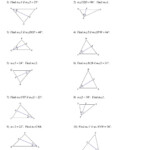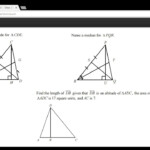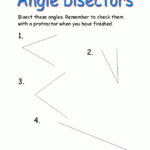Making Bisectors Of Angles And Lines Independent Practice Worksheet – If you’re looking for Line Angle Worksheets, you’ve come to the right place. These printables can help you improve your math skills and learn the fundamentals of angles and lines. These printables will also teach you how to use a protractor and read it. In addition, these worksheets will help you classify angles and identify the relationship between different angles.
Use a protractor to practice reading and using it.
When reading angles, you need to use a protractor. There are two types of scales on a protractor: an inner and outer. The inner scale is used for angles that open to the right, and the outer scale is used for angles that open to the left. You can use printable exercises to help students practice reading protractor charts. These exercises can also be used to help students determine the dimensions of angles in one-degree increments.
The worksheets have different types of problems for students to practice using a protractor. Six problems each worksheet require students to use a protractor in order to create an angle. There are also 20 problems identifying angles. The questions do not start from zero, so students must make sure that they understand how to read protractors before trying to make measurements.
Classify angles
There are three types: right, acute, or obtuse angles. You should be able to distinguish each type from one another by using a protractor. The right angle is 90 degrees in length and is the easiest to identify. Avoid angles that aren’t quite right. Also, ensure that angles on the last worksheet are close to right angles.
The classify line angle worksheet can be a great way for students to understand the different classifications of angles. These worksheets are ideal for students in grades four, five, and six. These worksheets will enable students to identify various angles and increase their confidence.
Alternate interior angles
Students in grades four through eight are introduced to line angle worksheets, which include alternate interior and alternate exterior angles. The former refer to angles that are not part of a straight line and are formed by intersecting two parallel lines. The latter is the angle formed by crossing two parallellines in a different manner, but they are not always congruent.
Alternate interior angles refer to angles that have two vertices on opposite sides of a parallelline. They are also called co-interior angles. They are different types of angles that have similar measurements.
Recognizing angles from both sides
It is important to be able to recognize the sides of line angles when you study geometry. These angles are an important part of geometry and are usually introduced to fourth-graders. These concepts can be confusing for some students. As a result, you may want to consider hiring a tutor or enrolling your child in a maths tutoring course.
You may have encountered an angle in everyday life, such as the edge of a table or door. A protractor is a useful tool for identifying angles, and it measures them in degrees. Angles can be divided into two sides: one side is the initial and another side. The first side of a line is the straight one, while the second side is the angle’s opposite.
